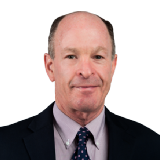May 1, 2020

Adam TeicherESPN Staff Writer
Kansas City Chiefs guard Laurent Duvernay-Tardif is a medical school graduate and volunteered to help recently when his hometown of Montreal experienced a shortage of medical personnel during the coronavirus pandemic.
He was assigned to assist in a long-term care facility. Shortly before his first shift, he was hit by the gravity of what he was about to do.
"It's one thing to want to go work,'' Duvernay-Tardif said Friday. "When you actually get the date of your first shift and everything, that's kind of when everything hits you and you think, 'How am I going to protect myself? How am I going to manage that with football and everything?'
"Everybody is concerned; everybody is kind of scared a little bit. I got my training for proper PPE (personal protective equipment) measure and usage, which is really important to me, just refreshing how to put on a gown, how to put on a visor, how to wash everything and just kind of putting in place kind of a process that makes you feel safe.''
As the COVID-19 virus reached Canada, Duvernay-Tardif reached out to the medical school at Montreal's McGill University to find out how he could help. He graduated from medical school at McGill earlier in his Chiefs career. Duvernay-Tardif has yet to begin the residency portion of his medical training, something he will need to do before becoming a practicing physician.
At first, as a popular professional athlete in his home country, he helped to promote social distancing measures that had been put into place.
"At some point, there was a shortage of people in long-term care facilities,'' he said. "Right now I'm working as an orderly. It was the easiest status to give me because I'm kind of in a gray zone. I graduated with my doctorate in medicine, but I'm not in the residency program. It was hard to jump in as a physician because I'm not really [a doctor] at this specific time. What the health care department needed was mostly as an orderly, so that's what I'm doing. I'm doing a little bit of nurse tasks, handing out medication, making sure the patients are all right. I'm working in a long-term care facility right now, so the average patient is closer to 80 years old.
"In a time of crisis, there are so many extra steps you have to take in order to protect yourself and also to protect your patients. We are wearing our visors and our masks all day long during the whole shift, washing our hands [frequently]. There are so many precautionary measures in place in order to protect both you and the patient, it makes everything heavier in terms of tasks. That's why they need so many people. Yes, there are a lot of medical professionals that have been sick from COVID[-19] or are in quarantine right now, but there is also just more work to do on every floor. That's why they need people and that's why I'm here right now."
Duvernay-Tardif, 29, is putting himself -- and possibly his NFL career -- at significant risk. He has been the Chiefs' starting right guard for the past five seasons and played every offensive snap in their Super Bowl LIV win over the San Francisco 49ers.
He said he keeps an empty apartment, away from his real home, that he uses as a "transitional zone'' after his work shift.
"I go back home to that apartment,'' he said. "It's empty. I just throw everything in the washer, wash it with special soap, take a shower and everything and then go home to try to protect my girlfriend as well. I don't want her to get sick, either.
"Of course, there are risks. At the end of the day you've got to look at it from a community standpoint, that having young, fit individuals working in an at-risk environment with the best protective gear possible, I think that's the best way to fight this thing and that's why I want to contribute.''
Duvernay-Tardif said he's keeping up as best he can with the Chiefs' virtual offseason program, which began last week. Before starting at the long-term care facility, he contacted the Chiefs and coach Andy Reid, who gave him permission.
"He's taking all the precautions he can, but he's jumping in,'' said Reid, whose mother also was a McGill Med School graduate. "He's going and you wouldn't expect anything different from Larry when you get to know Larry. He's all-in to being a doctor and being the best doctor he can possibly be.
"There are risks involved, but you go and you go 100 miles an hour. You take precautions that you can, but that's how he's handling it.''
Duvernay-Tardif said, "The Chiefs have been amazing. Everybody was really supportive and understanding. There's something a little bit bigger than football that's happening right now, and if I think I can contribute, I should.''